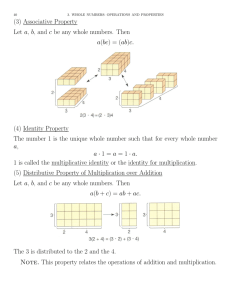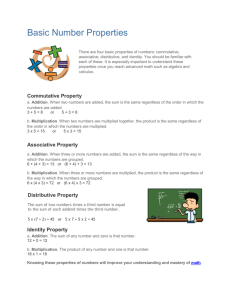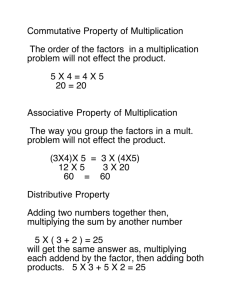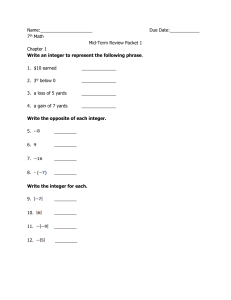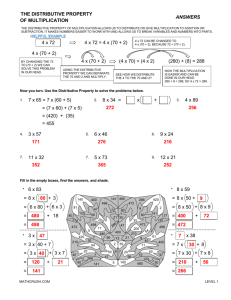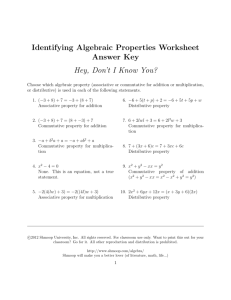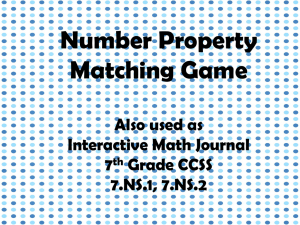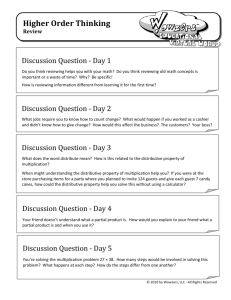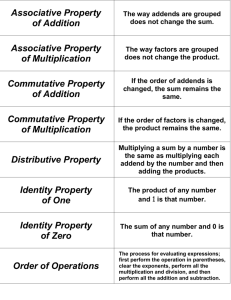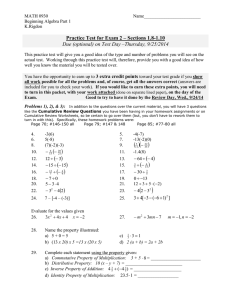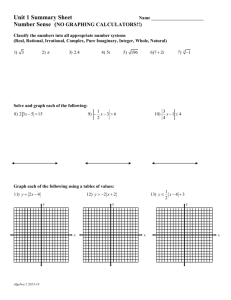Commutative & Distributive Properties Practice
advertisement
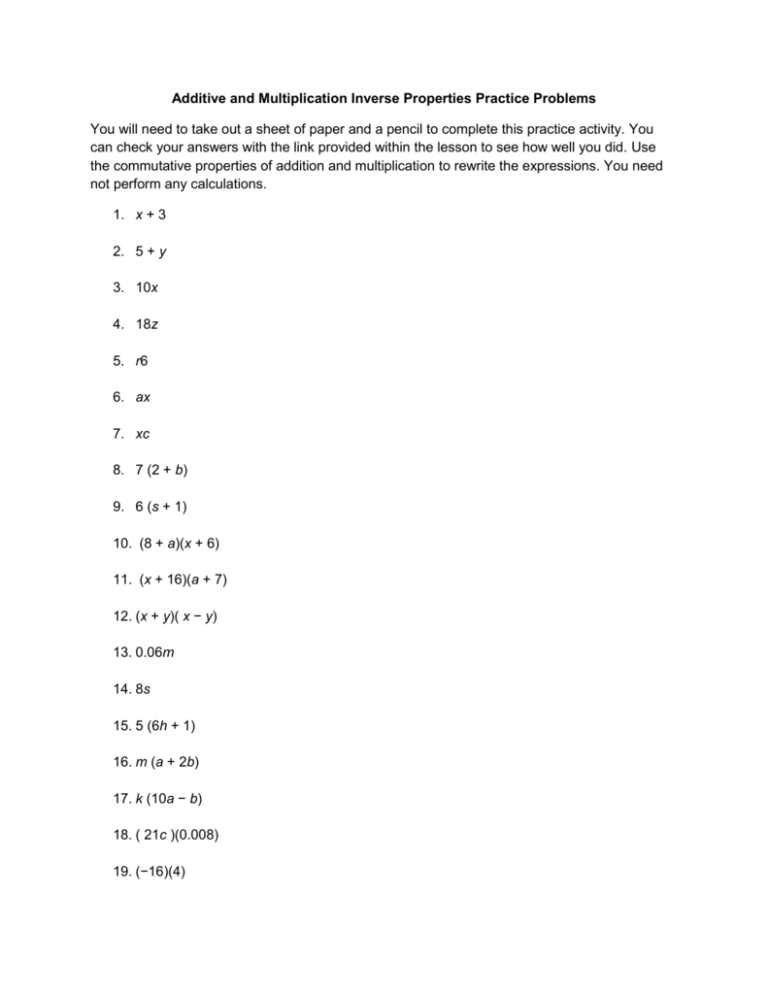
Additive and Multiplication Inverse Properties Practice Problems You will need to take out a sheet of paper and a pencil to complete this practice activity. You can check your answers with the link provided within the lesson to see how well you did. Use the commutative properties of addition and multiplication to rewrite the expressions. You need not perform any calculations. 1. x + 3 2. 5 + y 3. 10x 4. 18z 5. r6 6. ax 7. xc 8. 7 (2 + b) 9. 6 (s + 1) 10. (8 + a)(x + 6) 11. (x + 16)(a + 7) 12. (x + y)( x − y) 13. 0.06m 14. 8s 15. 5 (6h + 1) 16. m (a + 2b) 17. k (10a − b) 18. ( 21c )(0.008) 19. (−16)(4) 20. (5)(b − 6) 21. □ ⋅○ 22. (100 - n)(55) Simplify using the commutative property of multiplication for the following problems. You need not use the distributive property. 1. 9x2y 2. 5a6b 3. 2a3b4c 4. 5x10y5z 5. 1u3r2z5m1n 6. 6d4e1f 2(g + 2h) 7. ( )d( )e( )a For the following problems, use the distributive property to expand the quantities. 1. 2(y + 9) 2. b(r + 5) 3. m( u + a) 4. k( j + 1) 5. x(2y + 5) 6. z(x + 9w) 7. (1+ d)e 8. (8 + 2f)g 9. c(2a + 10b) 10. 15x(2y + 3z) 11. 8y(12a + b) 12. z(x + y + m) 13. 1(x + y) 14. 1(a + 16) 15. 0.48 (0.34a + 0.61) 16. 21.5 (16.2a + 3.8b + 0.7c) 17. 5x(2y + 3z) 18. 2zt (Lm + 8k) Resource: Ellis, W., & Burzynski, D. (2009, May 31). Basic Properties of Real Numbers: Properties of the Real Numbers. Retrieved from: http://cnx.org/content/m21894/1.4/. This work is licensed under the Creative Commons Attribution 3.0 Unported License. To view a copy of this license, visit http://creativecommons.org/licenses/by/3.0/.

